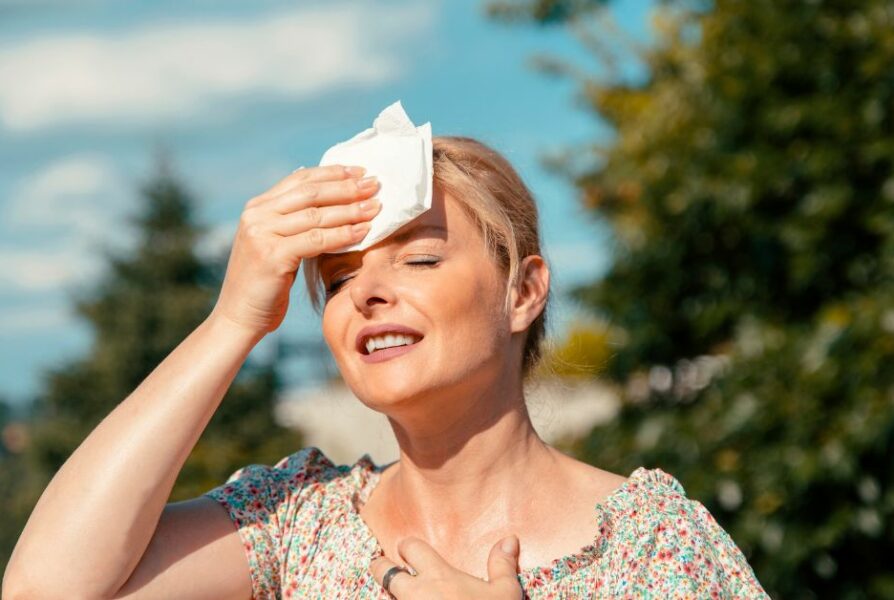Menopause can be a challenging phase in a woman’s life, marked by a range of physical and emotional symptoms such as hot flushes, night sweats, mood swings, and sleep disturbances. Traditional treatments like hormone replacement therapy (HRT) are effective but come with their own set of risks and side effects. As a result, many women are exploring alternative therapies, such as acupuncture, to alleviate their symptoms. This blog explores the potential benefits of acupuncture for managing menopausal symptoms, backed by scientific research and expert insights.
Understanding Menopause and Its Symptoms
Menopause typically occurs between the ages of 45 and 55, signalling the end of a woman’s reproductive years. It is characterized by a decline in estrogen and progesterone levels, leading to a range of symptoms, including:
– Hot Flushes and Night Sweats: Sudden feelings of heat that can disrupt sleep.
– Mood Swings and Anxiety: Emotional instability and increased anxiety.
– Sleep Problems: Difficulty falling or staying asleep, often due to night sweats.
– Fatigue: Persistent tiredness and lack of energy.
– Cognitive Issues: Problems with memory and concentration.
Acupuncture: An Overview
Acupuncture is a traditional Chinese medicine (TCM) practice that involves inserting thin needles into specific points on the body. It aims to balance the body’s energy flow (qi) and has been used for thousands of years to treat various ailments.
How Acupuncture Can Help Menopausal Symptoms
Hot Flushes and Night Sweats
Research suggests that acupuncture can significantly reduce the frequency and severity of hot flushes and night sweats. A study conducted by Wake Forest University found that acupuncture reduced hot flushes and night sweats by 47%, and for some women, the benefits were even greater. Another study indicated that acupuncture could help manage these symptoms for up to six months following treatment.
Mood Swings and Anxiety
Acupuncture is also effective in stabilising mood and reducing anxiety during menopause. It works by regulating neurotransmitters like serotonin and dopamine, which are crucial for maintaining mental health. According to TCM, balancing the liver system can help manage mood swings, as this organ is believed to play a key role in emotional regulation. Studies have shown that acupuncture can help alleviate depression and anxiety associated with menopause.
Sleep Problems
Acupuncture has been shown to improve sleep quality by addressing the underlying causes of sleep disturbances, such as hot flashes and hormonal imbalances. Specific acupuncture points, such as the three-yin intersection point, are targeted to promote better sleep.
Fatigue
Fatigue is a common complaint during menopause, often exacerbated by sleep problems and hormonal fluctuations. Acupuncture helps by boosting energy levels and promoting better overall health. It works by calming the yang energy and stimulating the yin energy, which helps in managing fatigue effectively.
Cognitive Issues
Menopausal women often experience cognitive issues, such as memory lapses and difficulty concentrating. Acupuncture can support brain health by promoting blood circulation and balancing the body’s organ systems, which are crucial for cognitive function.
Mechanisms of Acupuncture in Menopause
Acupuncture’s effects on menopause can be explained through several physiological mechanisms:
– Neurotransmitter Regulation: Acupuncture influences the release of neurotransmitters like serotonin and dopamine, which help regulate mood and sleep.
– Endorphin Release: The practice stimulates the release of endorphins, which are natural pain relievers and mood enhancers.
– Hormonal Balance: Acupuncture can help balance hormones by influencing the endocrine system, potentially increasing levels of estrogen and other beneficial hormones.
– Stress Reduction* By reducing cortisol levels, acupuncture helps manage stress and its related symptoms.
Debunking Myths and Addressing TikTok Trends
While acupuncture is a well-established therapy, some misconceptions and myths need to be addressed:
– Myth: Acupuncture is painful
– Fact: The needles used in acupuncture are very thin and typically cause minimal to no pain.
– Myth: Acupuncture works instantly.
– Fact: While some women may experience immediate relief, others might need several sessions to see significant improvements.
– Trend: TikTok claims that a single acupuncture session can cure all menopausal symptoms.
– Fact: Acupuncture can be effective, but it often requires a series of treatments and should be part of a comprehensive care plan.
Conclusion
Acupuncture offers a promising alternative for managing menopausal symptoms. Its benefits include reducing hot flushes, improving mood, enhancing sleep, and alleviating fatigue and cognitive issues. While more research is needed to fully understand its mechanisms, existing studies and clinical experiences suggest that acupuncture can be a valuable part of a holistic approach to menopause care.
For those considering acupuncture, it’s essential to consult with a licensed practitioner to ensure the best possible outcomes. At The Health Dispensary in Neath, South Wales, we are committed to providing integrative health solutions that inspire healthy, happy, and hopeful living.
References:
1. Healthline: Symptoms of Menopause Acupuncture Might Help.
2. Evidence-Based Acupuncture: Acupuncture Treatment for Menopausal Symptoms.
3. Medical News Today: Acupuncture may reduce menopause symptoms.
4. Harvard Health: Can acupuncture help my menopause symptoms?
5. Simply Menopause: Can Acupuncture Help Menopause Symptoms?
6. Elektra Health: Can Acupuncture Help With Perimenopause Symptoms?
7. Encircle Acupuncture: Perimenopause: 5 Ways Acupuncture Can Help.
8. Menopause Centre: The Benefits of Acupuncture for Reducing Menopausal Symptoms.
9. BBC News: Study on Acupuncture and Menopause.


